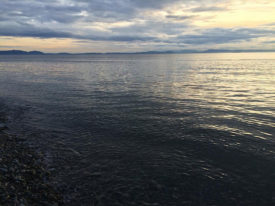Following Oregon’s lead, Washington’s governor asked the federal government to reinstate protection for all of Washington’s roadless areas (those areas that are untouched by roads but are outside the formal protection of national parks or wilderness areas).
Here’s the backstory: Bush administration policies devolved protection of those roadless areas to individual national forests, which resulted in roughly 700,000 acres in Washington losing protection. Rather than submitting a new (time-consuming, expensive, and completely redundant) analysis arguing for protecting those lands, Gregoire wants the feds to simply return to its former policy of protecting them—a policy that was based on exhaustive research and public input.
The US Department of Agriculture, which houses the Forest Service, is almost certain to reject Governor Gregoire’s proposal, as it did Kulongoski’s last week. That could set the stage for Washington joining Oregon, California, and New Mexico in suing the federal government over the burdensome requirements of getting roadless areas—already inventoried, studied, and approved—the protection they deserve.
It’s rather sad turn when states have to sue the federal government to protect the public’s resources. And protecting those roadless areas is important—they’re havens for endangered species, not to mention important vestiges of our heritage, nature left intact and untrammeled. Washington has a lot at stake with Gregoire’s proposal– the 700,000 acres of roadless areas at risk is roughly 3 times the size of Mount Rainier National Park.
UPDATE 11/4/05: The Salem Statesman Journalreports on the Bush administration’s rejection of Kulongoski’s proposal.
*****
In a similar vein, a great rant on paying for public lands access by Seattle Times columnist Ron Judd. Here’s a sample:
A visit to Mount Rainier National Park is not a ring tone, a movie rental, or any other expendable entertainment commodity. For many people, it’s a birthright…
******
UPDATE 11/9/05: A no-holds-barred editorial from the Daily Astorian on the selective use of states’ rights to promote resource extraction, but not conservation. Here’s a sample:
Once again showing that it supports states’ rights only so long as state leaders adhere to the activist Republican agenda of using national assets to enhance corporate profits, the Bush administration rejected Kulongoski’s petition to keep logging and mining out of undeveloped areas.








